Essay On Academic Dishonesty
Outline of Essay:
- Introduction
- Reasons For Academic Dishonesty
- Types of Academic Dishonesty
- Effects of Academic Dishonesty
- How To Avoid Academic Dishonesty
- FAQ’s
Introduction
Academic dishonesty, also known as academic misconduct, is a range of inappropriate and prohibited behavior related to academic work. It can take many forms including plagiarizing, cheating on exams or assignments, collusion with other students, falsifying data in experiments, and so on. Academic dishonesty affects not only the individuals involved but also the entire academic community at large.
Reasons For Academic Dishonesty
There are a variety of reasons why students resort to academic dishonesty. These include the pressure to perform, lack of time or resources, peer influence, and even external influences such as parents or friends.
Pressure To Perform: One of the primary reasons for academic dishonesty is the pressure to perform. Students may resort to cheating to get good grades or to keep their GPAs at a certain level.
Lack Of Time: Another common reason for academic dishonesty is lack of time. Students may be juggling multiple classes, jobs, or other commitments and may not dedicate enough time to their academic work, resulting in them resorting to cheating.
Peer Influence: Peer pressure is another major factor that can encourage students to engage in academic dishonesty. It is especially common among high school or college students who may feel the need to fit in with their peers and follow their lead.
External Influences: External influences such as parents or friends can also play a role in encouraging students to cheat. Parents may pressure their children to get high grades, or friends may provide inappropriate assistance during tests and exams.
Other factors such as competition and a fear of failure can also lead to cheating.
Types of Academic Dishonesty
Academic dishonesty comes in many forms including plagiarism, cheating on tests and assignments, collusion with other students, and falsifying data in experiments. It is important to be aware of the different types of academic dishonesty so that you can avoid it or properly address it if you encounter it.
Plagiarism involves taking someone else’s work, ideas, or words and presenting them as your own without giving credit to the source. This includes both text-based and non-textual material such as images, videos, or audio recordings.
Cheating on tests and assignments involves any form of unethical behavior such as obtaining answers from someone else, using unauthorized notes or materials, collaborating with other students, or altering answers after the test has been completed.
Collusion involves working with other students to gain an unfair advantage in tests or assignments. It can include sharing information, collaborating on projects, or having someone else do the work for you.
Falsifying data in experiments refers to manipulating results or fabricating data to achieve a desired outcome. This can be done by creating false data or manipulating the results of an experiment to make them appear more favorable.
Effects of Academic Dishonesty
Academic dishonesty can have serious consequences for both the individual and the entire academic community. It undermines the integrity of a school’s educational system and can lead to unfair advantages for certain students.
On an individual level, academic dishonesty can lead to a range of negative consequences such as suspension or expulsion from school, loss of scholarships or financial aid, and a tarnished reputation. It can also have long-term effects on career opportunities and personal relationships.
How To Avoid Academic Dishonesty
It is important to be aware of the risks associated with academic dishonesty and to take steps to prevent it. Schools should have policies in place that clearly outline the consequences of cheating and ensure that all students are aware of them. They should also provide resources such as tutoring or study groups to help students succeed without resorting to dishonest behavior.
The best way to avoid academic dishonesty is to be honest, and take responsibility for your work. Make sure you understand the rules of each assignment or test and comply with them. If you are facing difficulty, reach out for help instead of cheating.
Set realistic goals and expectations for yourself that are achievable without resorting to dishonest behavior. Make sure you allocate enough time for studying and completing assignments to avoid feeling rushed or overwhelmed.
Finally, stay away from peers who engage in academic dishonesty; it is often contagious. Surround yourself with honest students and create a study group that encourages integrity.
By understanding the risks and consequences of cheating, as well as the strategies for avoiding it, you can be sure to maintain your academic integrity. Academic honesty is essential for a successful and rewarding educational experience.
FAQ’s
What is the most common form of academic dishonesty?
The most common form of academic dishonesty is plagiarism, which involves taking someone else’s work, ideas, or words and presenting them as your own without giving credit to the source.
What are the features of academic dishonesty?
Academic dishonesty includes any form of unethical behavior such as obtaining answers from someone else, using unauthorized notes or materials, collaborating with other students, or altering answers after the test has been completed.
Is academic dishonesty morally wrong?
Yes, academic dishonesty is morally wrong and can lead to serious consequences. It is important to take responsibility for your work and avoid dishonest behavior to maintain your integrity.
Download the Pdf of the Essay On Academic Dishonesty
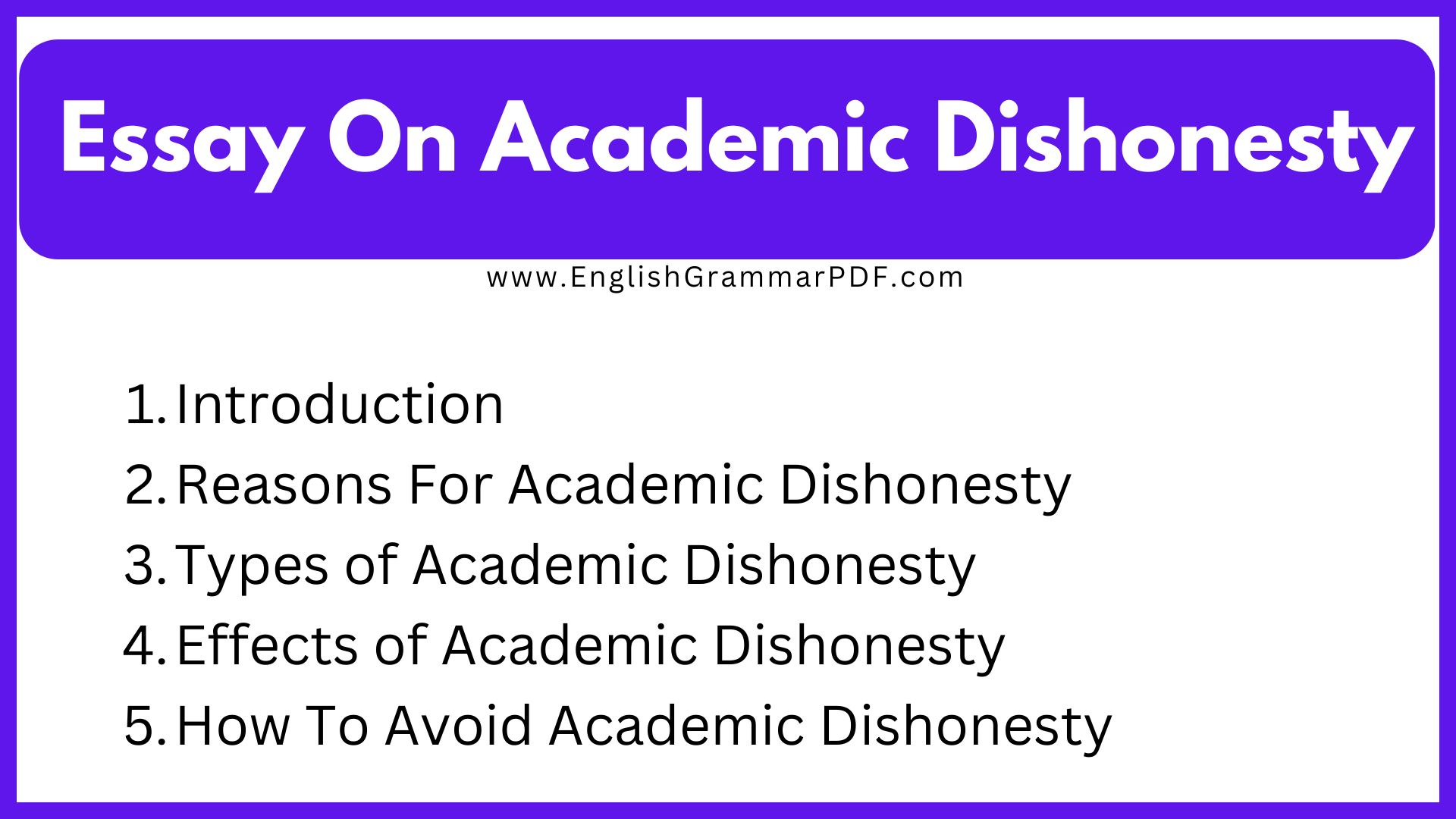
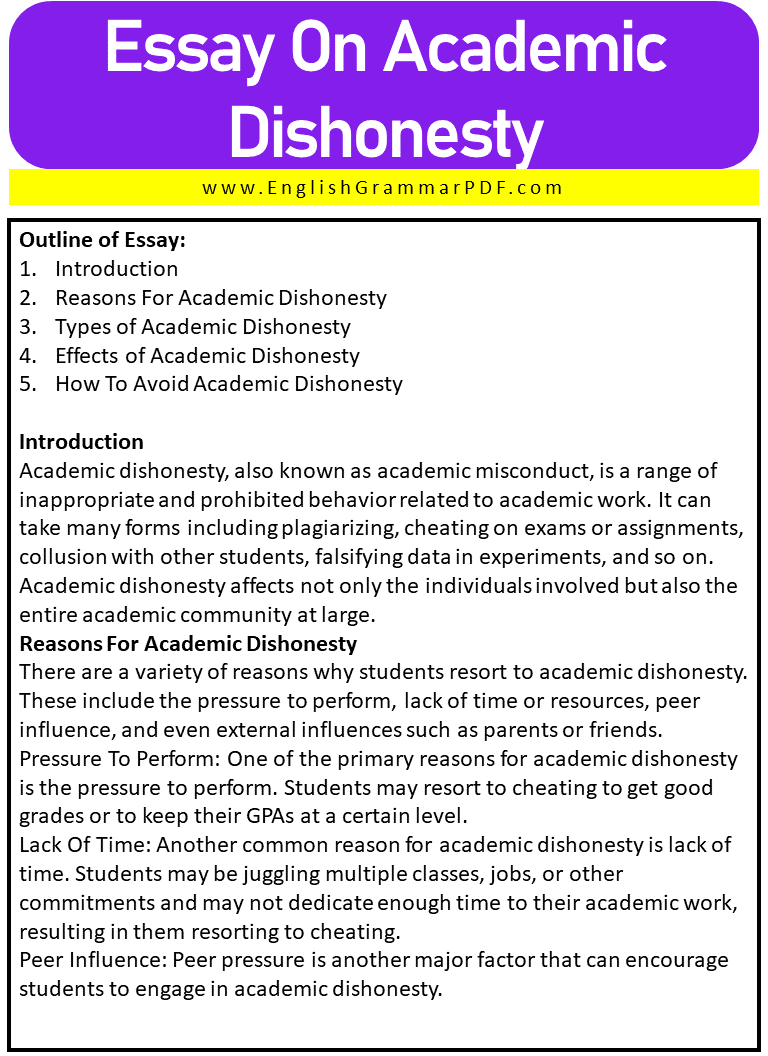
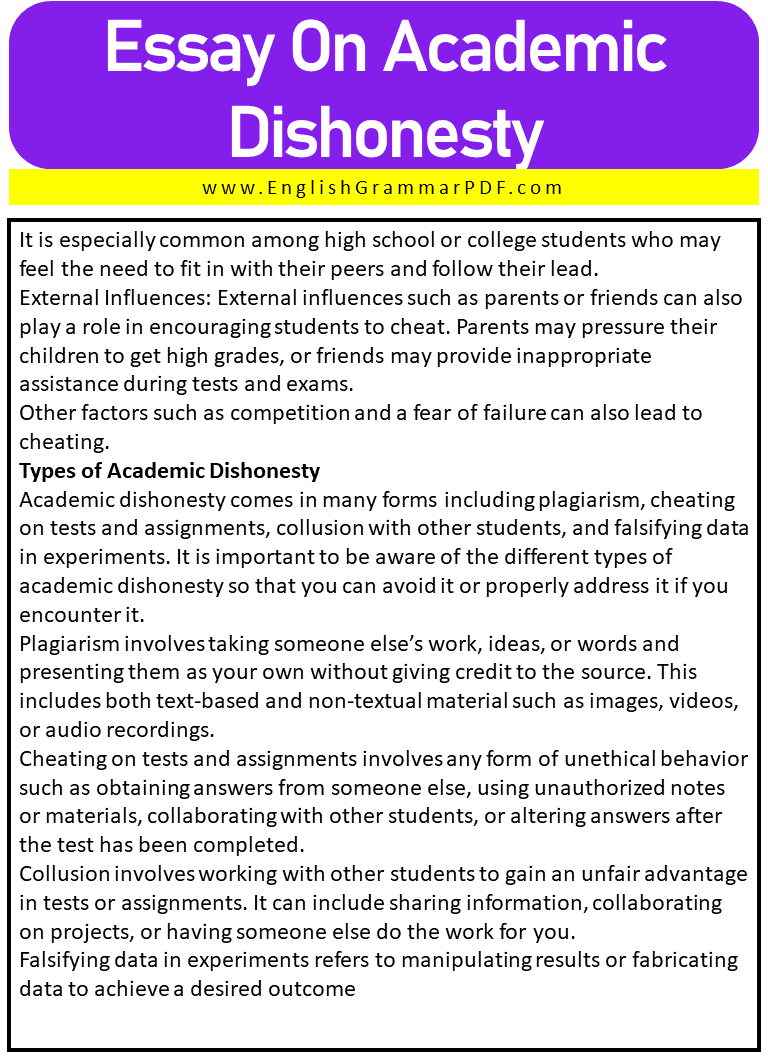
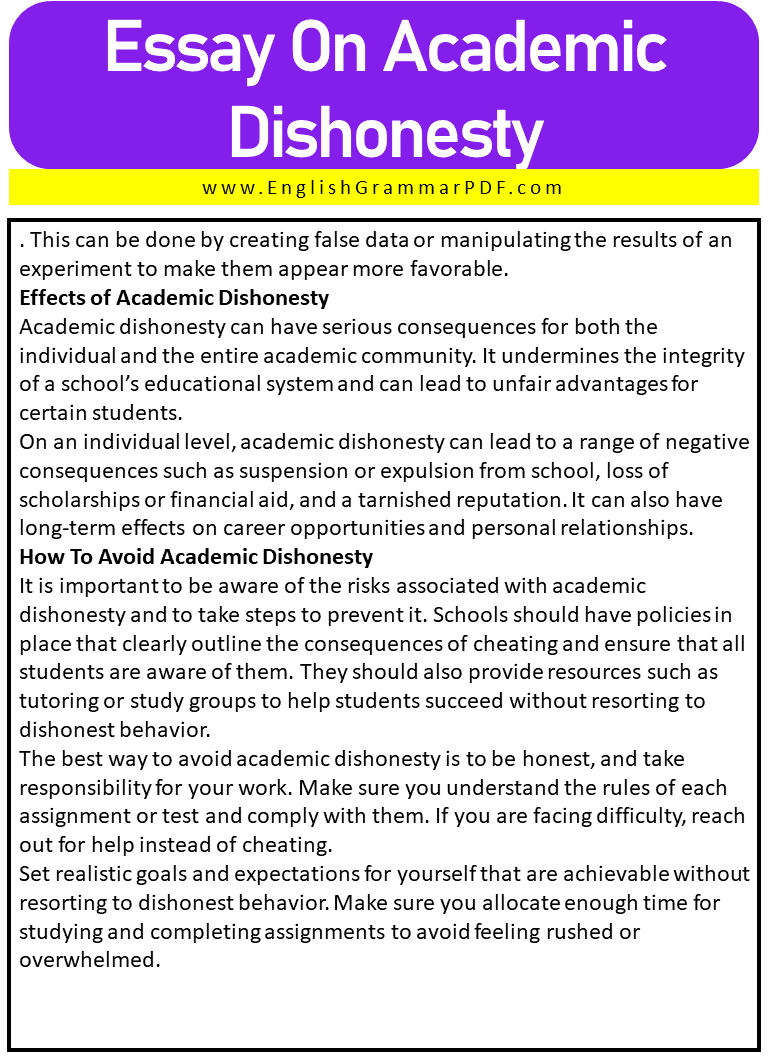
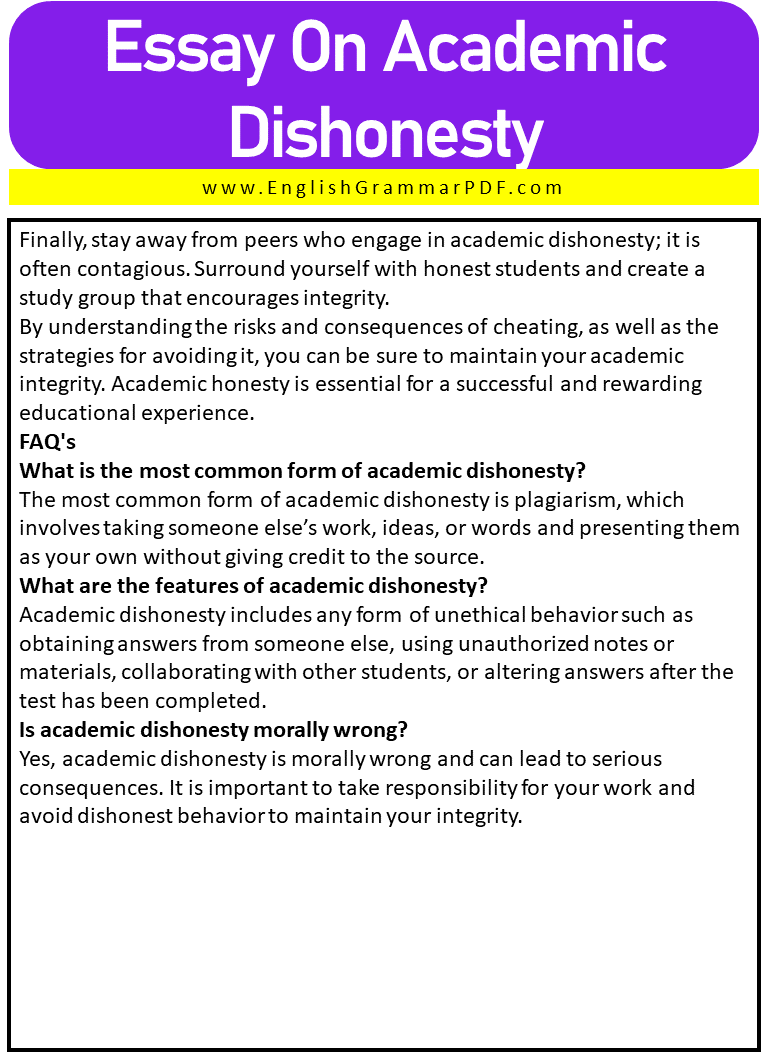
Read More Essays:


